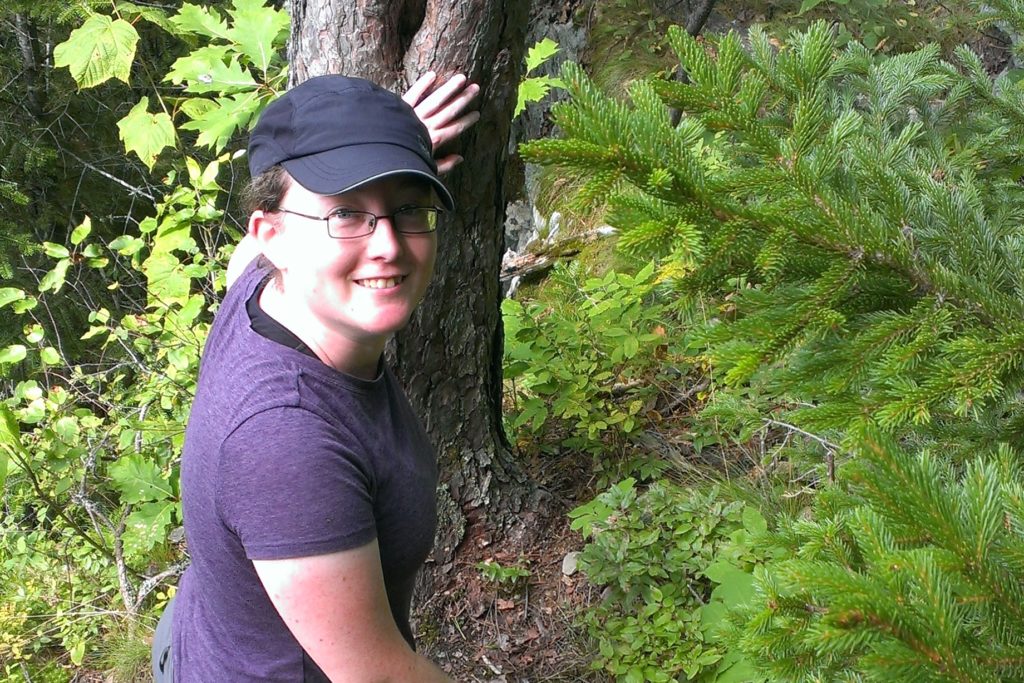
CHRISTINA BERGEY – PRINCIPAL INVESTIGATOR
Assistant Professor
Department of Genetics
Rutgers University
Office: Nelson Biological Laboratory, Room B416, Busch Campus
Email: christina.bergey@rutgers.edu
Twitter: @bergeycm
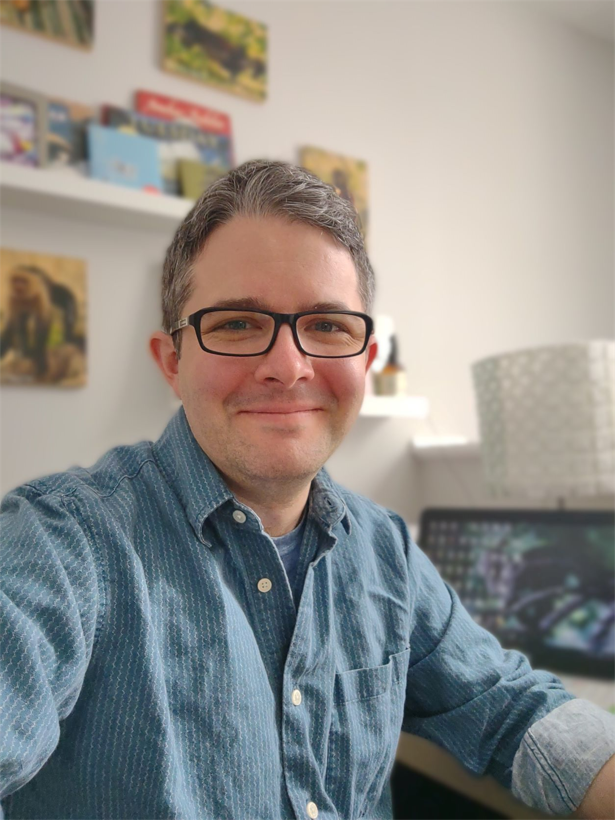
MORGAN CHANEY – POSTDOCTORAL RESEARCHER
Department of Genetics, Rutgers University
Morgan’s broad interests range from evolutionary genomics to gross anatomy. His dissertation research comprised the ways in which primates have evolved to tolerate or detoxify xenobiotic compounds or plant secondary metabolites through natural selection on cytochrome P450 genes. Currently, Morgan is leading projects focused on adaptation in primates with a particular interest in the bamboo lemurs of Madagascar and how they have adapted to consume an extremely specialized diet that can contain many times the level of cyanide required to kill an animal of that body size. He is also leading a study on the vector ecology of the mosquito that carries La Crosse Virus, which causes pediatric encephalitis in places like Ohio. Aside from research, Morgan has a passion for education and has taught a number of subjects at the secondary, postsecondary, and graduate levels since beginning his educational career in 2011.
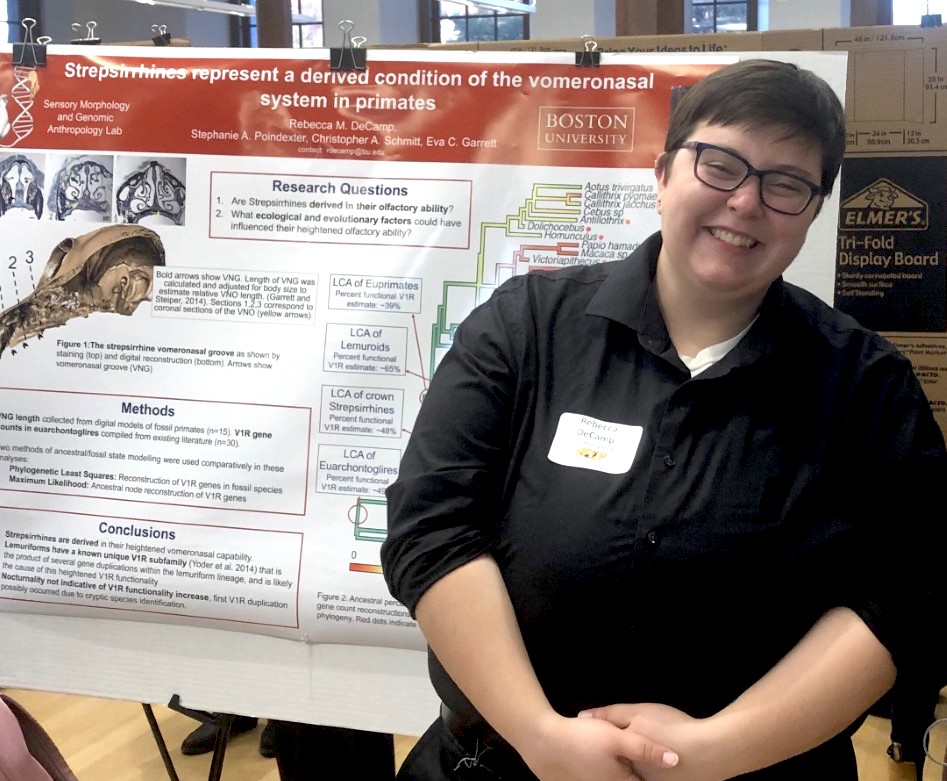
BECCA DECAMP – Ph.D. STUDENT
Program: Human Evolutionary Studies (Anthropology), Rutgers University
Email: rmd222@scarletmail.rutgers.edu
Becca is a Ph.D. candidate in biological anthropology. They are interested in how sperm competition drives the evolution of sperm proteins in primates with different mating systems. Specifically, Becca is looking at how genes implicated in sperm competition may have convergently involved in strepsirrhines, as well as how these genes may be differentially expressed in the testes across primates. Becca is passionate about LGBTQ visibility and outreach in STEM, and they are involved in both the Rutgers Anthropology graduate student-led Equity and Inclusion initiative and in the American Association of Biological Anthropology’s LGBTQ subcommittee, GayABA.
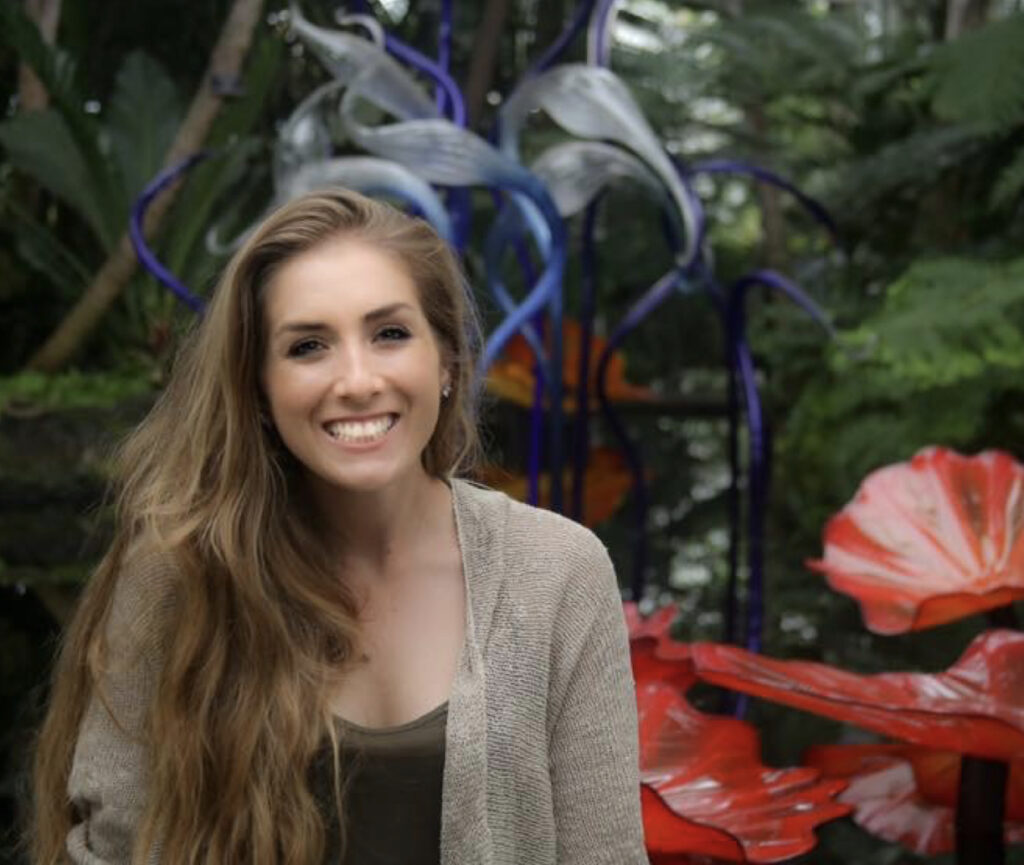
LINDSEY HAUFF – Ph.D. STUDENT
Program: Ecology and Evolution, Rutgers University
Email: lindsey.hauff@rutgers.edu
Lindsey is a doctoral student in the Ecology and Evolution Graduate Program at Rutgers University. She is interested in the application of evolutionary and population genomics to biodiversity conservation. Her research uses molecular and bioinformatic approaches to reconstruct the past demographic history of endangered primate species in Madagascar in order to model how the species may be able to adapt to rapid habitat change. Her analyses often make use of DNA from non-invasive samples from wild primates, as well as DNA from museum specimens.
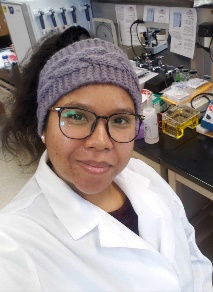
MIARISOA RAMILISON – Ph.D. STUDENT
Program: Human Evolutionary Studies (Anthropology), Rutgers University
Email: miarisoa.ramilison@rutgers.edu
Miari’s research interests include lemur ecology and evolution, parasites, infectious disease, and conservation. She graduated from Central Washington University in 2023 with her second master’s degree in Primate Behavior. Her research focused on the relationship between the intestinal parasite burden and social contact behavior in Tibetan macaques in China. She also holds a master’s in Zoology from the University of Mahajanga in Madagascar. At that time, she did research on the morphology, ecology, and ectoparasites in two species of mouse lemurs (golden brown and grey mouse lemurs) in northwestern Madagascar. Her two master’s degrees inspired her to continue research focused on parasites and infectious diseases in lemur ecology and conservation in Madagascar for her Ph.D.
ADITYA GIRISH – UNDERGRADUATE STUDENT
Department of Computer Science, Rutgers University
Aditya is an undergraduate student interested in bioinformatics and computational biology. At the lab, he is currently working on analyzing microsatellites in the genomes of the Anopheles gambiae mosquito in order to investigate their genetic population structure. He is excited to explore the field of genetics using computational methods.
CORINNE GROOME – UNDERGRADUATE STUDENT
Department of Genetics, Rutgers University
Corinne is an undergraduate student interested in developing and applying molecular biology methods for isolating human (and non-human primate) DNA from non-invasively collected sources that have a high microbiome component. The methods have wide potential application in fields from conservation biology to colon cancer diagnostics.
NIKITA GUELMER – UNDERGRADUATE STUDENT
Aresty Research Program, Rutgers University
Nikita is an undergraduate student who joined the lab as part of the Aresty Research program. For her first project with the lab, Nikita studied the impact of archaic introgression, specifically gene flow from Neandertals into the modern human gene pool, on fertility using polygenic risk scores.
VIBHAVARI MADHAVA – UNDERGRADUATE STUDENT
Department of Genetics, Rutgers University
Vibhavari is an undergraduate whose research project focuses on the use of metatransriptomics to understand relationships between pathogens impacting child health and co-infecting microbes. She is currently leading a project studying the nasal virome and its impact on respiratory disease in children.
THEO MARTIN – UNDERGRADUATE STUDENT
Aresty Research Program, Rutgers University
Theo is an undergraduate student who joined the lab as part of the Aresty Research program. For his project, Theo studied the impact of archaic introgression, specifically gene flow from Neandertals into the modern human gene pool, on fertility using polygenic risk scores.
Lab Alumni
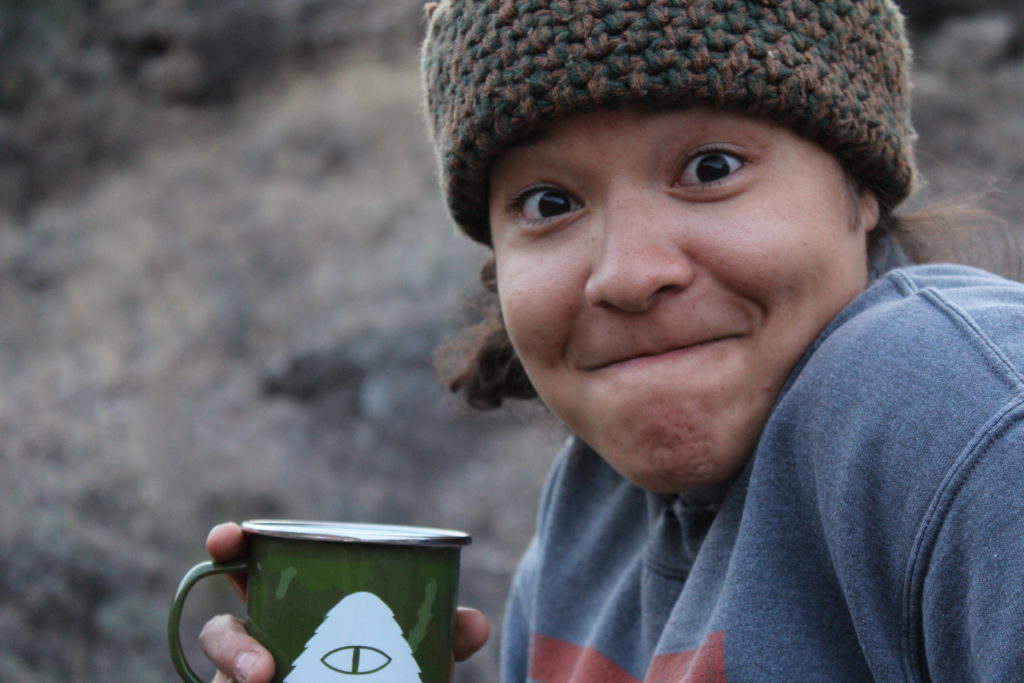
AMBER TRUJILLO – Ph.D. STUDENT (co-advisee)
Department of Anthropology, New York University
2018 Predoctoral Ford Fellow
Email: aet359@nyu.edu
Amber is a doctoral student in biological anthropology interested in the coevolution of malaria, mosquitoes, and primates. She is specifically focused on investigating immune response evolution using dual-transcriptomics, as well as using environmental DNA for insecticide resistance tracking and vector surveillance. She is also passionate about scientific outreach and teaching.
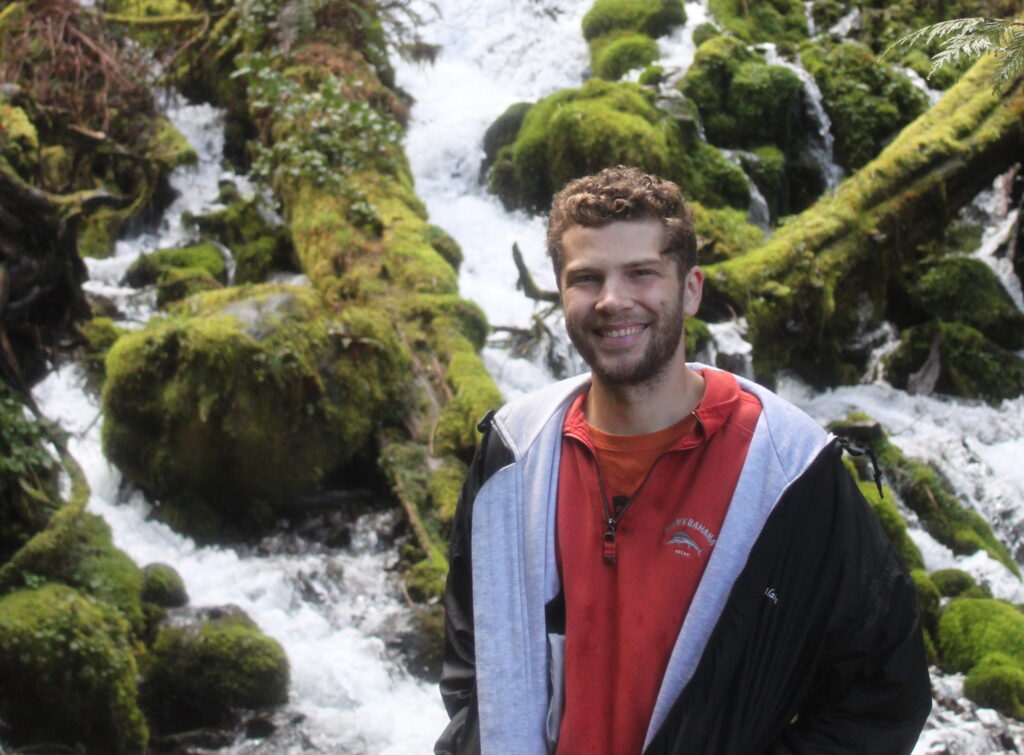
CORY HENDERSON – POSTDOCTORAL RESEARCHER (2021-2022)
Current position: Founder and CEO, BioDrive, Inc.
During his time in the lab, Cory used bioinformatic and molecular approaches to understand the transmission of vector-borne pathogens, with the ultimate goal of developing technology to prevent their spread. His research aimed to understand immunity in human disease vectors, primarily in mosquitoes. He has spun off a start-up company, BioDrive, Inc., that aims to apply similar methods to evade transgene silencing in plants engineered for plant-based bio-production.
ANGELA CASALLAS – UNDERGRADUATE STUDENT (2022-2023)
Angela worked on reconstructing the evolutionary tree of a species group of mosquitoes using whole genome sequences during her time in the lab.
KEVIN TILTON – UNDERGRADUATE STUDENT (2020-2022)
Current position: Research technician, Jain Lab, Rutgers Department of Genetics
Kevin worked on a computational analysis of anthropoid (monkey and ape) primate genomes, looking at coding sequence variation to determine how primate evolution has been impacted by malaria.
ALEXANDRA BECK – UNDERGRADUATE STUDENT (2020-2022)
Current position: Research technician, Fischer Lab, Dana Farber Cancer Institute/Harvard Medical School
Alexandra undertook several projects while at the lab, including sex-biased differences in transcription response to O’nyong’nyong Virus (ONNV) infection in Anopheles mosquitoes, as well as how COVID-19 and coronavirus-associated genes and genes linked to iron homeostasis have evolved in primates.
KIARA DIAZ RODRIGUEZ – UNDERGRADUATE STUDENT (2021-2022)
Kiara’s work in the lab focused on how evolutionary methods can be used to understand traits relevant to people’s health. She researched how complex traits, like insecticide resistance, are evolving in populations of the malaria mosquito, Anopheles gambiae.
EMILY ALI – UNDERGRADUATE STUDENT (2019-2020)
Current position: Research technician, Memorial Sloan Kettering Cancer Center
Emily’s work in the lab involved comparing genes linked to language across human populations, correlating linguistic traits of populations to variation at genomic regions known to influence language acquisition.
